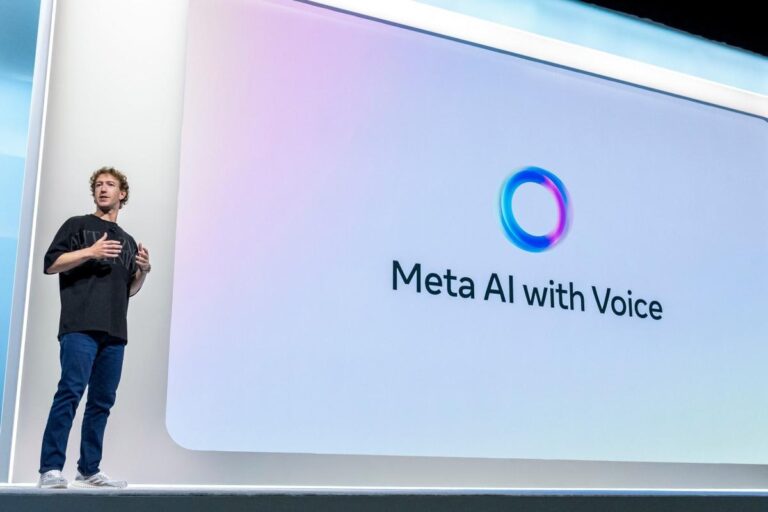(Bloomberg) — Facebook parent Meta Platforms Inc. launched a new artificial intelligence tool that can generate or edit videos based on a simple text prompt, increasing competition with rivals like OpenAI and Google in the race to develop the world’s most advanced AI technology.
Most read on Bloomberg
Meta’s product, Movie Gen, can create a new video up to 16 seconds long based on a text prompt. It can also use such prompts to generate sound or edit an existing video, or even use a photo to create a personalized video featuring a real person.
Movie Gen is only available to select internal employees and a handful of external partners, including some filmmakers, although the social media company – which also owns Instagram, WhatsApp and Messenger – plans to integrate the product into its existing apps next year.
Executives are still discussing how best to implement this integration, but the goal is for Movie Gen to encourage more people to create or edit video posts, said Connor Hayes, Meta’s vice president of product. of generative AI. It will be “fun to use, useful for creators, good for overall app engagement, but we don’t have a concrete product plan for what it will look like at this point,” he said.
The social media leader is one of several big tech companies pursuing AI models focused on video generation, which are more complicated and more expensive to create than those that return AI-generated text . OpenAI, backed by Microsoft Corp., has its own video generation tool, called Sora, which debuted earlier this year and can create videos up to a minute long, although this technology is not still available to the public. DeepMind, a subsidiary of Alphabet Inc.’s Google, also has a video generation tool, called Veo, that was unveiled earlier this year.
Meta is waiting to roll out Movie Gen for several reasons, including the efficiency of the technology. It currently takes “tens of minutes” to generate a video based on a text prompt — too long for the general public, who are likely to use it on their phones, Hayes said.
But Meta also “addresses a number of very important safety and accountability issues,” Hayes said, including how to handle personalized videos so that a user can’t create an inappropriate or unflattering video that highlights feature another person without their consent. “This will likely be the most important issue to resolve before making customization capability available to the masses.” This type of technology has been used in the past to create deceptive so-called deepfakes of famous people, including US President Joe. Biden and pop star Taylor Swift, although Meta executives said they were working on ways to “watermark” these creations so people can know they are AI-generated.
Meta has made AI advancements a key priority for the entire company, and CEO Mark Zuckerberg has repeatedly spoken about AI as a driver of user and revenue growth. In the short term, Zuckerberg credited AI with helping improve the company’s content algorithms by showing people more relevant posts and ads. Ultimately, Zuckerberg said he believes AI will play an even bigger role in powering its apps and other futuristic wearable devices that Meta produces, like smart glasses.
Most read from Bloomberg Businessweek
©2024 Bloomberg LP

